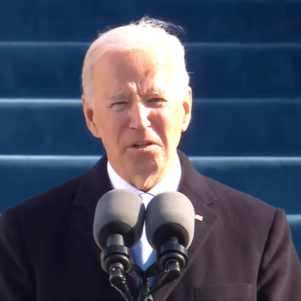Gaza-Jerusalem Juxtaposition Tells a Story About Limits
By Ira Stoll | June 16, 2018, 13:11 EDT

The stark juxtaposition of the celebratory opening of America’s new embassy to Israel in Jerusalem and deadly Palestinian riots in Gaza has led some to conclude that one has something to do with the other.
As New York Times columnist Max Fisher put it in a tweet, “Now up to 37 people killed. Hope Jared and Ivanka are having lots of fun at the embassy opening!”
A journalist for the Economist described the Palestinian fatalities as the “Awful but not unexpected result of America abandoning all semblance of fair-dealing in Israeli-Palestinian conflict.”
By this narrative, Palestinian hopelessness leads to violence. That could be. But the thing is, Islamist violence has been remarkably consistent for nearly a century.
Nearly 70 Jews were killed in the 1929 Hebron riots. Palestinian terrorists killed 11 Israeli athletes at the Munich Olympics in 1972. Another 25 Israelis were killed by Palestinian terrorists in the Ma’alot Massacre in 1974. The 1990s and 2000s saw a series of Palestinian suicide attacks on Israeli passenger buses, at the Dolphinarium disco, at the Sbarro restaurant.
These attacks happen when Washington sides with Israel, as it has during the Trump administration, and when it tries to pressure Israel or mediate more even-handedly, as it did in other administrations. The attacks target America, as they did on September 11, 2001, and they target European capitals with foreign policies that are more tilted toward the Arabs. More than 190 were killed in the Madrid train bombings of 2004, more than 50 in the 2005 London transit bombings, hundreds more in the attacks in Paris and Brussels in 2015 and 2016. America’s embassy in Iran was seized in 1979 and Pan Am Flight 103 was downed in 1988.
These attacks happened when America’s embassy was in Tel Aviv, and they happened on the day America’s embassy moved to Jerusalem. They happen when Israel has right-wing governments and when Israel has left-wing governments, and, as in 1929, before Israel even existed. In some cases the perpetrators haven’t even been hopeless Palestinians, they’ve been wealthy Saudis such as Osama Bin Laden or petroleum-rich governments such as those of Iran or Libya.
The Gaza violence is sad. Press coverage of it often notes that no Israelis have been killed in the clashes, as if it would somehow be better if the deaths were more evenly distributed. Yet if the choice is between deaths of Palestinian rioters in Gaza or civilians in New York, London, Madrid, Brussels, Paris, Jerusalem, or Tel Aviv, electorates and foreign policy hands alike aren’t going to spend a lot of time agonizing. If there’s any upside to the Gaza riots, it is that they make it clear that the primary Palestinian complaint isn’t about Israeli settlers or occupation — Israel withdrew its settlers from Gaza in 2005 — but about Israel’s existence.
The Gaza clashes are also a reminder of the limits of what American or Israeli policy can accomplish.
So much of 20th and 21st-century history has been about mind-boggling achievements that people might have thought impossible. Atomic fission, the smartphone, passenger jet travel, the Internet, the return of the Jewish people to the land of Israel and the development there of a prosperous, technologically advanced, and imperfect but largely free, liberal, and tolerant democracy.
Part of wisdom, too, though, is recognizing that there are limits to what can be accomplished. Poverty can be ameliorated, but not eliminated. Crime can be reduced, but it will never entirely disappear. That doesn’t mean people should stop trying. But even gradual progress is easier if one begins with the humility of reasonable expectations.
Prime Minister Benjamin Netanyahu, in his remarks at the embassy opening ceremony on May 14 quoted from the biblical prophet Zechariah’s prediction that Jerusalem will one day be known as the “city of Truth.”
“The truth and peace are interconnected,” Netanyahu said. He didn’t expand much on the idea. But the events of the day made it clear enough what he was getting at.
Ira Stoll is editor of FutureOfCapitalism.com and author of JFK, Conservative.











